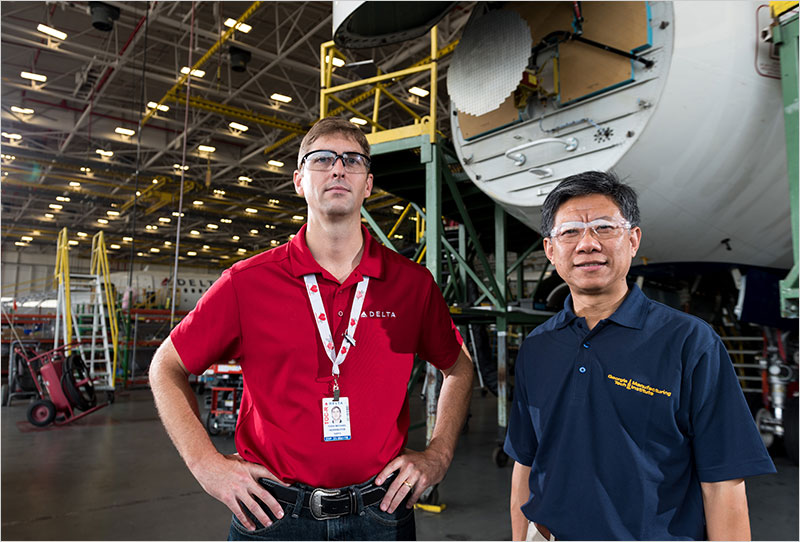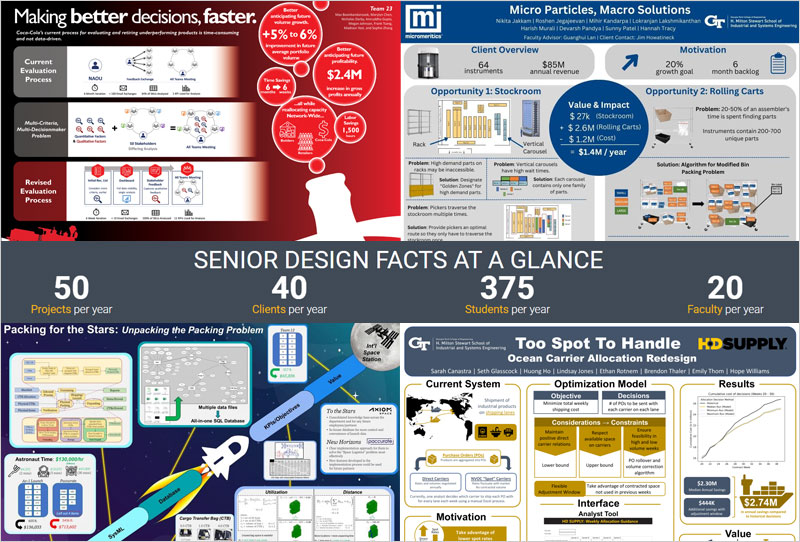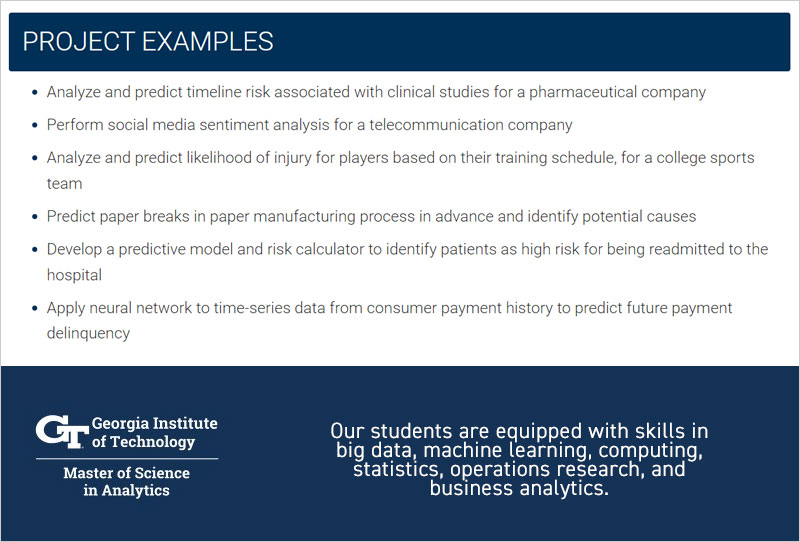Collaborative partnerships have long been an important component of SCL's philosophy. While we cover a wide spectrum of projects and research, there are two main approaches to working with us. You can work with our world-renowned faculty on a research project that focuses on a critical need or area of concern to help advance your organization’s goals, or you can work with a group of bright, intellectually curious undergraduate or master’s students and a faculty advisor within a capstone design class on a relevant company-specified problem.
Faculty Projects
Work with an individual Georgia Tech faculty member or group of researchers by sponsoring a supply chain related project.
Faculty-led Research Projects
SCL affiliated faculty regularly work with corporations and other entities to perform in-context research that provides new knowledge, tools, and insights related to the immediate interest of a business partner. These projects are organized with individual faculty members or small groups of faculty and may be structured as company-funded sponsored research, direct consulting, or philanthropy depending on the type of desired partnership. SCL affiliated faculty members typically have students participate in these research endeavors.

Faculty-led research opportunities are usually the best option either when results are needed very quickly or when the research questions are long-term and require deeper technical expertise.
Student Projects
Work with a team of Georgia Tech students first-hand, by sponsoring an individual or group of students to work on a real-world supply chain related project. These collaborations help businesses tackle strategic challenges while providing students with valuable, applied learning experiences.
ISyE has three academic capstone design classes – Undergraduate Senior Design, MS in SCE Capstone, and MS in Analytics Capstone – in which students spend an intensive semester working on an engineering design project for a client company or other organization. These projects are designed to challenge and enhance the students' problem-solving skills while training them to utilize all available resources to develop a solution for the project client. The programs also offer a unique opportunity for your organization to partner and interact with these students, a win-win collaboration for both the students and your organization.
Master of Science in Supply Chain Engineering – Capstone Industry Experience
The summer (May-July) semester of the M.S. in Supply Chain Engineering program is dedicated to a Capstone Project in which graduate students identify and define a supply chain design and/or analysis problem to be addressed with quantitative modeling. Companies gain insights from students' advanced analytical skills, industry-leading faculty mentorship, and innovative supply chain modeling and solutions.

ISyE Senior Design
The pinnacle of every ISyE undergraduate's academic journey is the Senior Design capstone course where student teams select a major design project from a company or not-for-profit organization and exploit all available resources in order to develop a solution.
During this transformative experience, students collaborate with organization representatives, leveraging skills and knowledge to devise innovative solutions for real-world challenges. Senior Design not only solidifies theoretical understanding, but also equips students with practical problem-solving skills and a taste of teamwork dynamics.
Visit the below link to learn about the program, see examples of past projects, and to submit a potential project.

Projects span two semesters, with the first semester dedicated to project scoping and team formation, and the second semester focused on project execution under faculty mentorship.
Master of Science in Analytics – Capstone Experience: Applied Analytics Practicum
As part of the MS Analytics curriculum, students are required to gain experience by working with a company or organization on a real analytics or data science project. One way to fulfill this requirement is through the 6-credit Applied Analytics Practicum course.
The practicum spans an entire semester (10 weeks for summer or 15 weeks for fall or spring) ending with a written report and presentation to the sponsor. Students from the on-campus MSA cohort will work in teams of 3-4 members, while students from the on-line MSA cohort will work individually or in teams of 2-3 members on the practicum project. All students are expected to spend 20 hours/week on a project.

Short-Term In-Semester Student Projects (10-15 Hours/Week)
Many Georgia Tech students seek applied industry experience during the semester through short-term projects, typically requiring 10-15 hours per week per student. These projects focus on practical business challenges and provide companies with an excellent opportunity to access top supply chain talent.
SCLO Case Study Consulting Projects
The Supply Chain and Logistics Organization (SCLO) is a student-led group dedicated to supply chain education, networking, and consulting projects. Companies can engage with SCLO through student-led consulting projects addressing real-world challenges, gaining fresh insights and innovative supply chain solutions, and connecting with emerging supply chain talent.